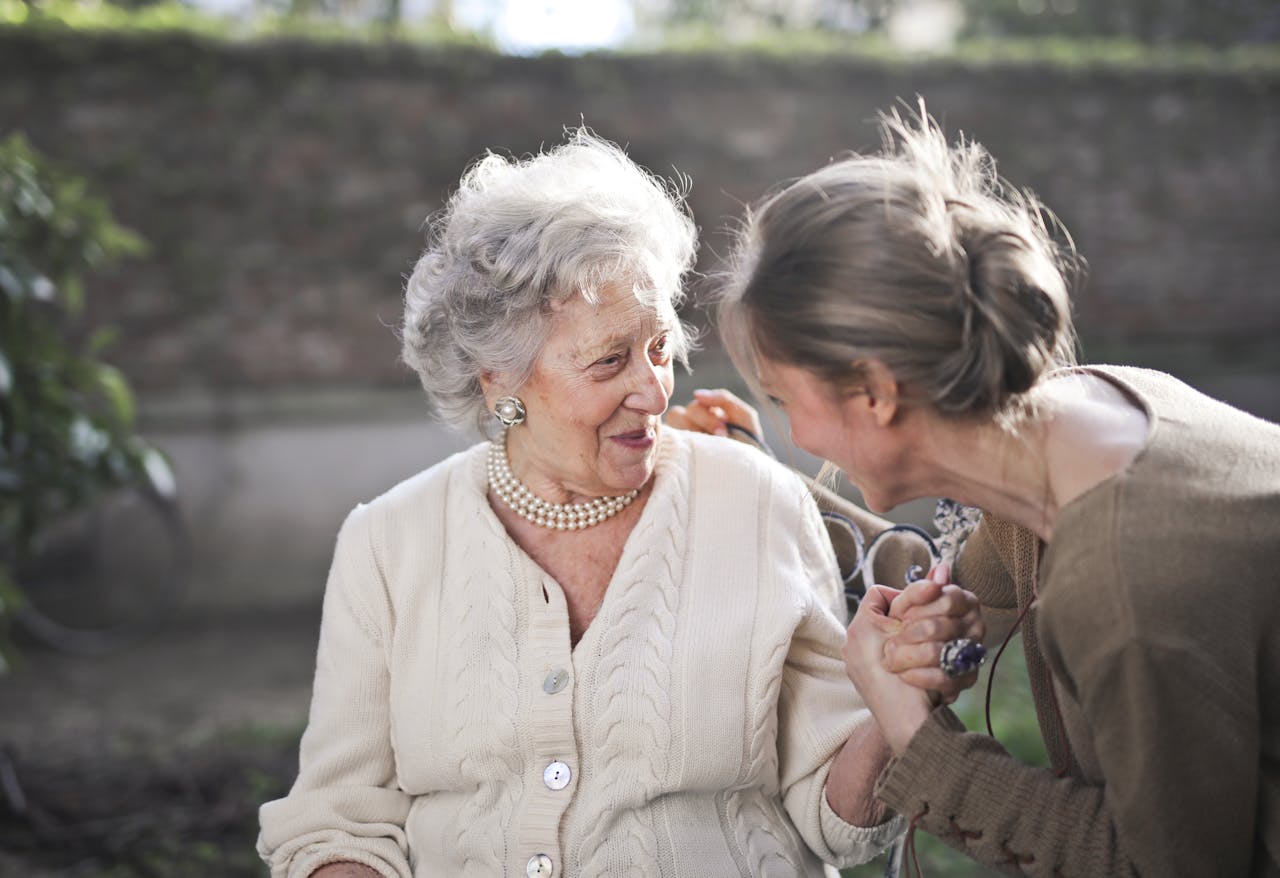As our loved ones age, ensuring their well-being and happiness becomes a priority. Often, they can live independently for many years, but there may come a time when they need additional support – not necessarily medical care, but assistance with daily living or simply companionship. It’s important to recognize the signs early to make informed decisions that prioritize both their safety and quality of life. Here’s how to tell if your parent or other elderly loved one may benefit from senior companion care.
1. Increased Isolation or Loneliness
Social isolation can have a profound impact on the health and well-being of seniors. If your loved one is spending most of their time alone, has stopped participating in social activities, or expresses feelings of loneliness, companion care could be beneficial. A companion can provide social interaction, engage in meaningful conversations, and accompany them to events or appointments, preventing the emotional toll of loneliness.
2. Difficulty Managing Daily Tasks
As people age, simple tasks like cooking, cleaning, or running errands can become challenging. You may notice your loved one’s home is becoming untidy, laundry is piling up, or they’re not eating nutritious meals. While they may not need full-time care, having a companion to assist with these tasks can help them maintain their independence and a higher quality of life.
3. Decline in Personal Hygiene
A noticeable decline in personal hygiene can indicate that your loved one is struggling to care for themselves. If they’re no longer bathing regularly, wearing clean clothes, or brushing their teeth, it might be time to explore companion care. A caregiver can gently assist with grooming and hygiene routines, ensuring your loved one stays comfortable and confident in their appearance.
4. Memory Issues or Forgetfulness
Memory lapses are common as we age, but if your loved one is becoming increasingly forgetful — missing appointments, forgetting to take medication, or leaving the stove on — it may be time for additional help. While companion care isn’t a substitute for specialized dementia care, a senior companion can provide reminders and support with daily routines, keeping your loved one safe and on track.
5. Changes in Mood or Behavior
Significant mood swings, irritability, or increased signs of depression can be a red flag that your loved one is struggling emotionally. Companion care can provide emotional support and companionship, improving mental well-being by reducing feelings of isolation. Sometimes, having someone to talk to or engage in activities with can make all the difference.
6. Difficulty with Mobility or Physical Limitations
If your loved one is having trouble getting around, whether due to a recent injury, chronic condition, or general weakness, they may be at risk for falls or other accidents. A senior companion can assist with mobility, help them get in and out of chairs, accompany them on walks, or ensure they safely navigate their home environment.
7. Concerns About Safety
Have you started worrying about your loved one’s safety, especially when they’re home alone? Concerns about leaving doors unlocked, misplacing items, or being targeted by scams are all signs that they may benefit from someone checking in regularly. A companion can offer reassurance, monitor their well-being, and provide peace of mind for both you and your loved one.
8. Withdrawal from Hobbies or Interests
If your loved one is losing interest in activities they used to enjoy, it might indicate that they’re struggling with motivation or energy. Whether it’s gardening, reading, or playing cards, a senior companion can help reignite their passion for hobbies by providing encouragement and joining them in activities, bringing joy back into their routine.
9. Weight Loss or Poor Nutrition
Significant, unexplained weight loss or signs of poor nutrition, such as a lack of food in the house or reliance on processed, unhealthy options, can be an indication that your loved one is no longer able to manage meal preparation. A companion can assist with grocery shopping, meal planning, and cooking nutritious meals to ensure their dietary needs are met.
10. Caregiver Burnout
If you or other family members are already providing care and are feeling overwhelmed, it might be time to bring in a professional companion caregiver. Caregiver burnout is common and can affect your ability to provide the best possible care. A companion can alleviate some of the burden, giving you more time to focus on your own well-being while ensuring your loved one is still receiving quality care.
Making the Decision for Companion Care
Choosing companion care for your parent or other elderly loved one is an act of caring. It’s important to approach the conversation with sensitivity, emphasizing that the goal is to enhance their independence, not take it away. By providing the right level of support, you can help them continue living safely and comfortably in their own home while maintaining the social connections that keep them emotionally and physically healthy. A little extra support can go a long way in ensuring their happiness and well-being.
Hire a Senior Care Companion from A New England Nanny
If you’ve noticed any of the above signs in your elderly loved one, consider hiring a senior care companion from our agency. Our caregivers are thoroughly screened, experienced, and reliable. We’ll work with you to create a senior care schedule that works for you and your parent or other elderly loved one.
Request a service or give us a call at (518) 348-0400 and let us know how we can make your life easier!

